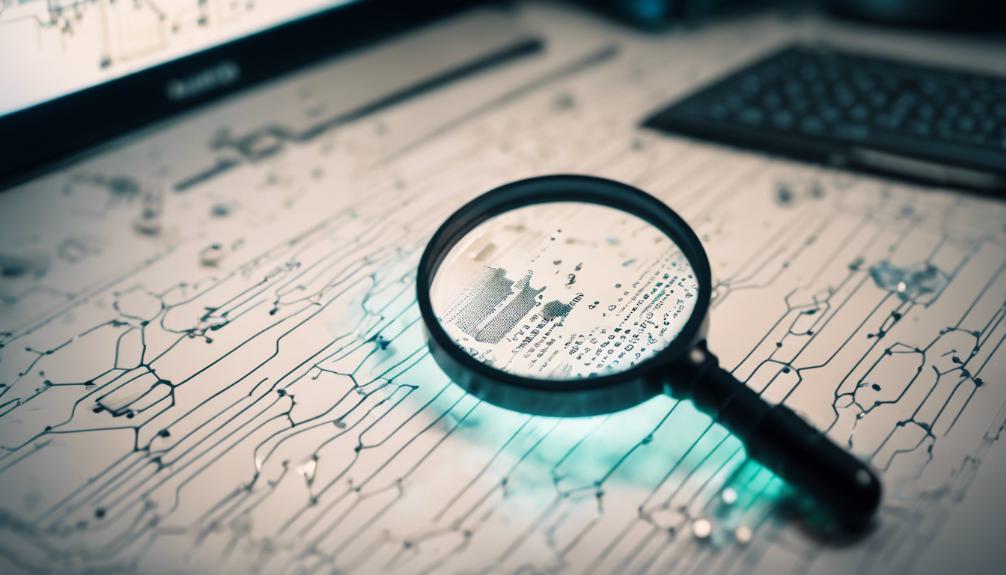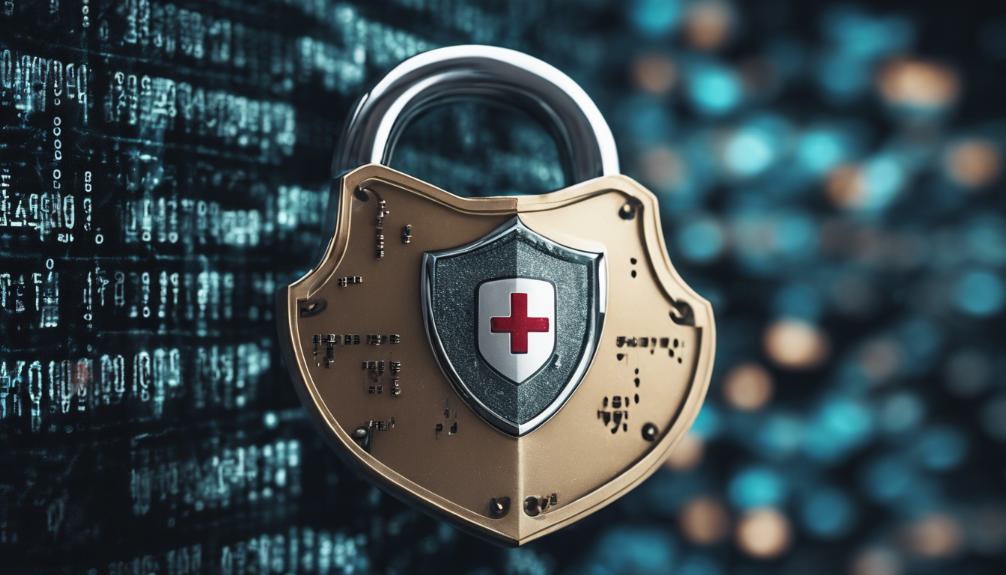Apria Healthcare's Massive Data Breach Exposed
The recent revelation of a massive data breach at Apria Healthcare, compromising the sensitive information of nearly 2 million patients, has cast a spotlight on the fragility of digital security within the healthcare sector. This incident, characterized by its vast scope and the highly personal nature of the exposed data, prompts a critical evaluation of data protection practices and the mechanisms organizations have in place to prevent such breaches. As we explore the details of this breach, its discovery, and the subsequent response by Apria, one is compelled to contemplate the broader implications for patient privacy and the trust we place in healthcare providers to safeguard our most personal information.
Key Takeaways
- Apria Healthcare's data breach affected 2 million patients, exposing sensitive information.
- The breach was discovered in October 2021, involving unauthorized access dating back to 2019.
- Apria faced criticism for delayed breach notification and non-compliance with HIPAA regulations.
- Affected individuals received 12 months of identity theft protection and credit monitoring services.
Data Breach Overview

Apria Healthcare experienced a significant data breach, impacting 2 million patients, where unauthorized access to confidential information occurred between 2019 and 2021. This breach compromised a vast array of personal and sensitive data, including full names, social security numbers, credit/debit card details, and medical records. For those dedicated to serving others, especially in the healthcare sector, this incident underscores the critical importance of safeguarding patient information. The breach not only exposes individuals to potential financial fraud and identity theft but also breaches the trust patients place in healthcare providers. It serves as a stark reminder of the responsibilities healthcare organizations have in protecting the privacy and security of patient data, highlighting the need for stringent security measures and ethical handling of patient information.
Timeline of Events

Following the overview of the data breach impacting Apria Healthcare, it is important to outline the sequence of events that led up to and followed the discovery of this security incident. The breach initially occurred in 2019, with a subsequent occurrence in 2021, exposing sensitive patient information over extended periods. After the discovery in October 2021, Apria Healthcare took immediate steps to secure its network and initiated a thorough investigation with cybersecurity experts. This timeline underscores the complexities and challenges in detecting and responding to data breaches. It also highlights the critical need for timely action and transparency in communicating with those affected to mitigate potential harm and uphold the trust placed in healthcare providers by patients and their families.
Breach Discovery

The discovery of the data breach at Apria Healthcare in October 2021 marked a critical juncture in understanding the extent of unauthorized access to sensitive patient information. This revelation not only underscored the vulnerabilities within Apria's digital infrastructure but also illuminated the pressing need for stringent security measures and protocols to protect individuals' privacy and personal details. As stewards of sensitive health data, the responsibilities vested in healthcare providers are immense. This incident served as a potent reminder of the paramount importance of vigilance, ethical responsibility, and the adoption of advanced security frameworks to preempt such breaches. For those dedicated to serving others, ensuring the sanctity and confidentiality of patient information must be an unwavering commitment, upheld with the utmost integrity and diligence.
Compromised Data Types

In the data breach incident involving Apria Healthcare, various types of sensitive patient information were compromised, including full names, social security numbers, credit/debit card details, and PINs. This breach exposed not only the personal identification of individuals but also their financial and health information, putting patients at significant risk of identity theft and financial fraud. For those dedicated to serving and protecting the vulnerable, this incident underscores the critical importance of safeguarding sensitive data. It is a stark reminder of the potential consequences of failing to do so, not just for the individuals whose data has been compromised but also for the trust and integrity of the healthcare system as a whole.
Apria's Initial Response

Upon discovering the data breach, Apria Healthcare's initial measures aimed to secure its network and consult with cybersecurity experts, marking the beginning of their response to the incident. Recognizing the importance of the situation, the organization acted swiftly to mitigate any further unauthorized access to its systems. This action was vital in preventing additional data from being compromised and showcased Apria's commitment to protecting its patients' confidential information. By engaging with cybersecurity professionals, Apria sought to understand the breach's extent and identify vulnerabilities within its system. This step was essential for developing a thorough strategy to address the current breach and prevent future incidents. Apria's responsive actions demonstrated a dedication to upholding trust and safeguarding the personal and medical information of those they serve.
Security Measures Taken

Following the discovery of the data breach, Apria Healthcare's implementation of enhanced security measures marked a critical step in its efforts to fortify its network against future threats. Recognizing the paramount importance of safeguarding patient information, the organization swiftly engaged with leading cybersecurity specialists to overhaul its data protection strategies. This collaboration facilitated a thorough evaluation of existing vulnerabilities, leading to the deployment of advanced encryption technologies and strict access controls. Efforts were also intensified to educate staff on the significance of data security, emphasizing the role of vigilance in preventing unauthorized access. These measures reflect Apria Healthcare's deep commitment to restoring trust and ensuring the highest level of protection for the sensitive data entrusted to them by those they serve.
HIPAA Compliance Issues

While Apria Healthcare's implementation of enhanced security measures marked a important step toward safeguarding patient information, the organization's adherence to HIPAA compliance in the wake of the data breach presents its own set of challenges. Ensuring compliance with the Health Insurance Portability and Accountability Act (HIPAA) is vital for maintaining the trust and safety of patients, requiring strict protocols to protect sensitive information. The delay in breach notification, notably beyond the 60-day period mandated by HIPAA, raises concerns about the organization's commitment to these standards. For those dedicated to serving others, understanding and addressing these compliance issues is essential. It underscores the importance of not only reactive measures following a breach but also the proactive maintenance of rigorous data protection standards to prevent such incidents and protect individuals' rights and well-being.
Notification Delays Explained

Apria Healthcare's significant delay in notifying patients of the data breach has prompted a closer examination of the reasons behind this procrastination. The delay, extending almost two years post-discovery, raises substantial concerns within the healthcare community, especially among those committed to serving and protecting patients' well-being. Investigation into the matter suggests a complex interplay of factors, including the extensive scope of the breach, the intricate process of identifying affected individuals, and the need for a thorough investigation to make accurate information before notification. However, this delay underscores a vital lesson in the importance of swift action and transparent communication in the wake of data security incidents. It serves as a reminder that protecting patient information is not just a legal obligation but a moral one, emphasizing the need for robust data protection measures and prompt response protocols.
Identity Theft Protection Offer

In light of the notification delays, Apria Healthcare has taken a proactive step by offering 12 months of identity theft protection and credit monitoring services to individuals affected by the data breach. This measure is a conscientious effort to mitigate the impact on those compromised and demonstrates a commitment to their well-being. The service aims to provide peace of mind to affected patients by closely monitoring their credit reports for suspicious activities and alerting them to potential fraud. It is a reflection of Apria's dedication to rectifying the breach's consequences and safeguarding their patients' financial health. By extending this offer, Apria acknowledges the significance of the breach and their responsibility towards the affected community, endeavoring to restore trust through actionable support.
Risks for Affected Patients

Patients affected by the Apria Healthcare data breach face a myriad of risks, including potential identity theft and financial fraud, due to the exposure of their sensitive personal information. The unauthorized access to personal details, medical records, and financial data places these individuals in a vital position. Criminals could exploit this information to commit various illegal activities, greatly impacting the victims' lives. It's important for those affected to remain vigilant, monitor their accounts closely, and utilize the identity theft protection and credit monitoring services offered. By taking proactive steps, patients can mitigate some of the risks associated with this breach. Understanding their legal rights and the importance of safeguarding personal information in the future is also essential in preventing further harm.
Legal Consequences for Apria

Facing the aftermath of the data breach, Apria Healthcare could encounter significant legal penalties for failing to comply with HIPAA regulations and timely notify affected patients. This breach not only exposed sensitive patient data but also highlighted a concerning delay in communication that may have exacerbated the risk to those affected. Given the magnitude of the breach, involving personal, financial, and health information of 2 million patients, the legal ramifications could be severe. Potential penalties may include hefty fines, mandated corrective actions, and increased scrutiny from regulatory bodies. For organizations dedicated to serving others, this serves as a stern reminder of the importance of robust data protection practices and the legal obligation to promptly address and communicate any breaches, ensuring the trust and safety of all served.
Understanding Patient Rights

Understanding your rights as a patient is essential in the aftermath of a data breach, especially when sensitive information has been compromised. In situations like the Apria Healthcare data breach, where personal and financial information has been exposed, knowing your legal rights and the protections available to you is critical. Patients have the right to be informed about the breach in a timely manner, as stipulated by laws such as the Health Insurance Portability and Accountability Act (HIPAA). Additionally, victims are entitled to measures that safeguard their identity and financial integrity, such as credit monitoring services. It's also important for patients to understand their right to seek legal recourse if their information is misused, ensuring they are not just passive victims but empowered individuals in protecting their personal data.
Future Prevention Strategies

To mitigate the risk of future data breaches, it is imperative for healthcare organizations to implement thorough cybersecurity measures and adhere strictly to regulatory compliance. Ensuring the protection of sensitive patient data is not only a legal obligation but a moral one, especially for those committed to serving and safeguarding the well-being of others. This commitment involves the integration of advanced security technologies, detailed employee training on data privacy, and the establishment of clear protocols for detecting and responding to potential threats. Additionally, fostering a culture of security within the organization is vital, where every member understands their role in maintaining data integrity. By prioritizing these strategies, healthcare providers can significantly reduce vulnerabilities, thereby reinforcing trust and safety in their services.
Importance of Data Security

Building on the strategies for preventing future breaches, the importance of data security in healthcare cannot be overstated, as it directly impacts patient trust and safety. Healthcare providers hold sensitive, personal information that, if compromised, can lead to significant harm to individuals' financial and personal lives. Beyond the immediate repercussions of a data breach, the long-term implications for patient trust in the healthcare system are profound. Patients entrust healthcare providers not just with their health, but with their most private information. Ensuring the security of this data is not only a matter of compliance with regulations like HIPAA but a foundational aspect of patient care. Robust data security practices serve as a cornerstone for building and maintaining the trust that is essential for effective patient care and service.
Frequently Asked Questions
How Can Patients Check if Their Information Was Specifically Compromised in the Apria Healthcare Data Breach?**
To ascertain if their information was specifically compromised, individuals should proactively contact Apria Healthcare's dedicated support team. They may also utilize the complimentary identity theft protection and credit monitoring services offered by Apria. It's advisable to regularly review financial statements and credit reports for any discrepancies. Engaging with these resources equips patients with the necessary tools to identify potential misuse of their data and take timely corrective actions.
What Steps Should Individuals Take if They Notice Unauthorized Transactions or Suspect Identity Theft Following the Breach?**
In the wake of unauthorized transactions or suspected identity theft, individuals should act swiftly as guardians of their financial wellbeing. Initially, contacting financial institutions to alert them of suspicious activities is imperative. Following this, reporting the incident to credit bureaus and considering a credit freeze can offer an additional layer of protection. Engaging with the Federal Trade Commission (FTC) by filing an identity theft report is also advisable, providing a structured response to mitigate potential damages.
Can Affected Patients Join a Class-Action Lawsuit Against Apria Healthcare, and What Would the Process Entail?**
Affected patients considering legal action against a healthcare provider for a data breach may explore joining a class-action lawsuit. This process involves identifying an ongoing lawsuit that they can become a part of or initiating a new case through legal counsel. The lawsuit would seek to address grievances collectively, potentially including breaches of privacy and failure to protect personal information, and may result in compensation for damages suffered due to the breach. Legal advice should be sought to navigate this process.
Are There Specific State Laws That Might Provide Additional Protections or Compensation to Victims of This Data Breach, Beyond What Federal Regulations Mandate?**
Victims of data breaches may find recourse in specific state laws, which often provide additional protections or compensation beyond federal mandates. These laws can vary greatly by state, offering a range of remedies from credit monitoring to monetary compensation for damages incurred. Individuals affected should consult legal advice to understand their rights and the applicability of state laws in their particular case, ensuring they are fully protected and compensated where possible.
How Has Apria Healthcare's Data Breach Impacted Its Business Operations and Reputation Among Patients and Within the Healthcare Industry?**
The data breach at Apria Healthcare has greatly impacted its business operations and tarnished its reputation among patients and within the healthcare industry. This incident not only exposed sensitive patient information but also raised serious concerns about the company's commitment to data security and regulatory compliance. As a result, Apria Healthcare is now facing increased scrutiny, potential legal challenges, and a loss of trust that could have long-lasting effects on its operational stability and industry standing.
Conclusion
In the shadow of this digital tempest, Apria Healthcare's data breach serves as a stark reminder of the fragility of personal information in the digital age. Like a fortress besieged, the defenses of our digital sanctuaries can falter, laying bare the treasures within. This incident not only illuminates the path for Apria in fortifying its ramparts but also signals a clarion call across the healthcare industry. It underscores the paramount importance of erecting robust barriers and vigilant watchtowers to safeguard the sanctity of patient data against the ever-looming specter of cyber incursions.

This post has been generated by AI and was not reviewed by editors. This is Not legal advice. Please consult with an attorney.

